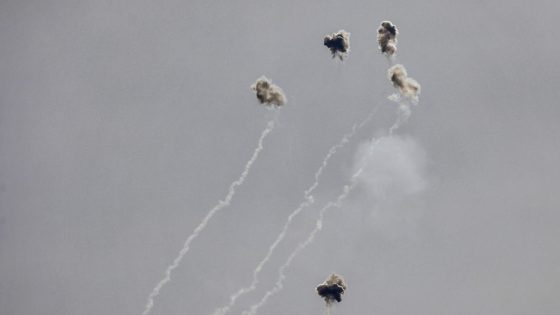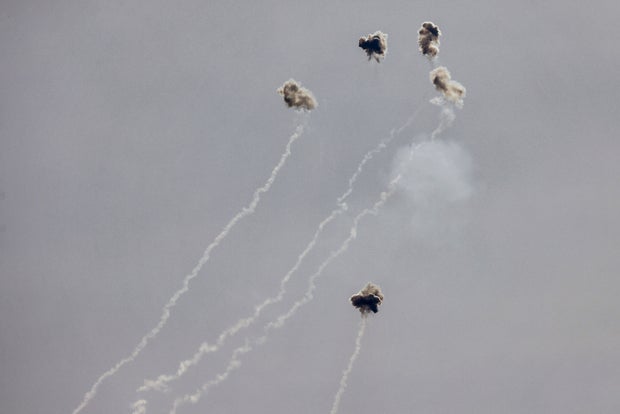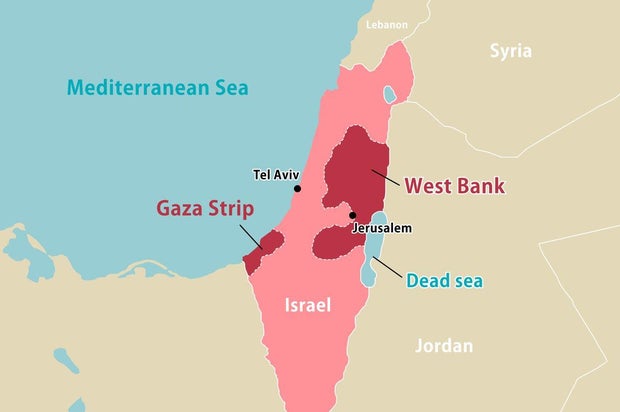Tel Aviv — Fear of a possible full-scale war between Israel and the Hamas-allied militant group Hezbollah in Lebanon was stoked Thursday after an Israeli airstrike killed a senior Hezbollah commander.
Israel said the commander it killed Wednesday, Mohammad Naameh Nasser, was responsible for firing rockets into Israel. Hezbollah — a group which, like Hamas, is backed by Iran but believed to be larger and much better armed — responded with another barrage of rocket fire.
Hezbollah has stepped up its attacks since Israel, which shares its northern border with Lebanon, launched the war in Gaza in response to Hamas’ Oct. 7 terrorist attack. Hezbollah has said it won’t stop firing rockets at Israel until there’s a cease-fire in Gaza.
JALAA MAREY/AFP/Getty
The Israel Defense Forces said it intercepted drones and other projectiles fired from southern Lebanon on Thursday and that some of the falling debris caused fires on the ground. The military did not report any casualties, but said it was responding to the Hezbollah fire by “striking launch posts in southern Lebanon.”
The escalating exchange of fire across the border has been deadly. The Lebanese Health Ministry reported at least 435 deaths on that side of the border as of June 26. About 90 of those killed by Israeli shelling have been civilians, according to the Al Jazeera network.
In Israel at least 27 people have been killed by Hezbollah rocket and drone attacks since October, including 10 civilians, according to previous statements by Israeli authorities.
Getty/iStockphoto
The clashes have also sparked an exodus, forcing tens of thousands of people in both northern Israel and southern Lebanon to flee their homes across the border region.
Israel and Hezbollah fought a bloody war in 2006, and the U.S. government has voiced concern over the prospect of a full-scale war that could prompt Iran’s proxy groups across the region to target American forces based in neighboring countries. They have already done so a few times since October, including a drone strike on an American base in Jordan that killed three U.S. troops in January.
The Biden administration has been working both with public diplomacy and behind closed doors to try to prevent that from happening.
Israel’s Defense Minister Yoav Gallant said Wednesday that his country would prefer a diplomatic solution, but “if reality forces us, we will know how to fight.”
Source Agencies






